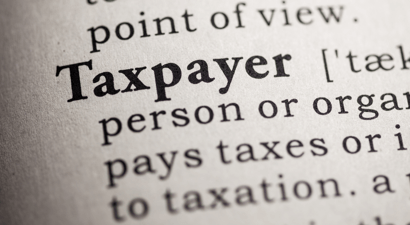Ignore the Dispute Process and Time Period At Your Own Peril
Every taxpayer has the right object against an assessment raised by SARS. Chapter 9 of the Tax Administration Act No 28 of 2011 (“TAA”), read with the Rules promulgated under section 103 sets out the procedure and time periods that taxpayers who are aggrieved by an assessment raised by SARS must follow.
Essentially, when SARS raises an assessment the taxpayer has 30 days within which to file an objection after the date of the assessment, or if grounds of assessment were requested from SARS, within 30 business days of delivery of the reasons. If an objection is lodged after the due date, you may request an extension, and if reasonable grounds exist for the delay, SARS may extend the period within which you can lodge your objection. SARS may allow all or part of the objection, or may disallow the objection in its entirety. The taxpayer in this regard must be provided reasons for any disallowance. Thereafter, if you disagree with the outcome of the objection, you can appeal any aspect of the objection that has been disallowed by SARS within 30 business days of delivery of the notice of disallowance.
During October 2016, the High Court of South Africa delivered a judgement in the case of Dale v Aeronastic Properties Ltd (Commissioner for the South African Revenue Service and Others Intervening) (9297/2016) [2016] ZAWCHC 160, which emphasised the repercussions of not following due process. Although the issue before the court related to Business Rescue, the financial position of Aeronastic was mainly due to the substantial tax liability it had to SARS.
Briefly, according to the facts of the case, Aeronastic, having purchased helicopters, helicopter components and spares from a company, claimed input tax in the amount of R14 million. In November 2009, SARS issued an assessment disallowing Aeronastic’s claim on the basis that the transaction which resulted in the input tax of R14 million was a scheme to obtain an undue tax benefit in terms of section 73 of the VAT Act. Aeronastic’s appeals against the assessment to the Tax Court were dismissed and its liability to SARS eventually grew to R48 Million as a result of interest and penalties. SARS thereafter took judgement against Aeronastic in the Magistrates Court Atlantis, for the outstanding tax debt. In August 2014, Aeronastic was placed under final liquidation and its subsequent appeals against the liquidation order were rejected by the Supreme Court of Appeal and the Constitutional Court. Aeronastic then brought the present business rescue application on 31 May 2016.
In the matters which granted the liquidation order, Aeronastic had argued that although the debt relied upon by SARS was owed, the debt would however fall away once the order of the Tax Court had been rescinded. The appeal was re-heard and it was found that SARS had incorrectly applied section 73 of the VAT Act. It was held, however, that SARS was correct in contending that the objection to its assessment had been finalised, and that there was no application to review the Tax Court’s order. The said order had been granted by agreement, and Aeronastic had been represented by counsel. No application to review and no payment had been received.
This case illustrates the importance of acquainting oneself with the dispute process before one blindly engages in exchanges with SARS. The proper steps must be taken within the designated time periods and due process has to be followed.
In the Dale case, as the objection was settle and although an appeal was lodged against the assessment, no actual application for review of the order of the Tax Court was made, therefore there was nothing to be adjudicated on by the court in relation to the tax dispute. Taxpayers should therefore always be weary and tread lightly when faced with an assessment from SARS.
In terms of the TAA, a taxpayer may not dispute an assessment or decision in any other court or other proceedings, except by way of objection and appeal or other forms of dispute resolution provided for in Chapter 9 of the TAA. Courts are reluctant in many cases to allow a taxpayer to undo the objection and appeal process where the proper time periods have not been adhered to.
Taxpayers must therefore be sure to familiarise themselves with the tax dispute process and be sure of the issues that they are objecting against and the time periods within which to object in. Knowing what needs to be done and by when is half the battle.





